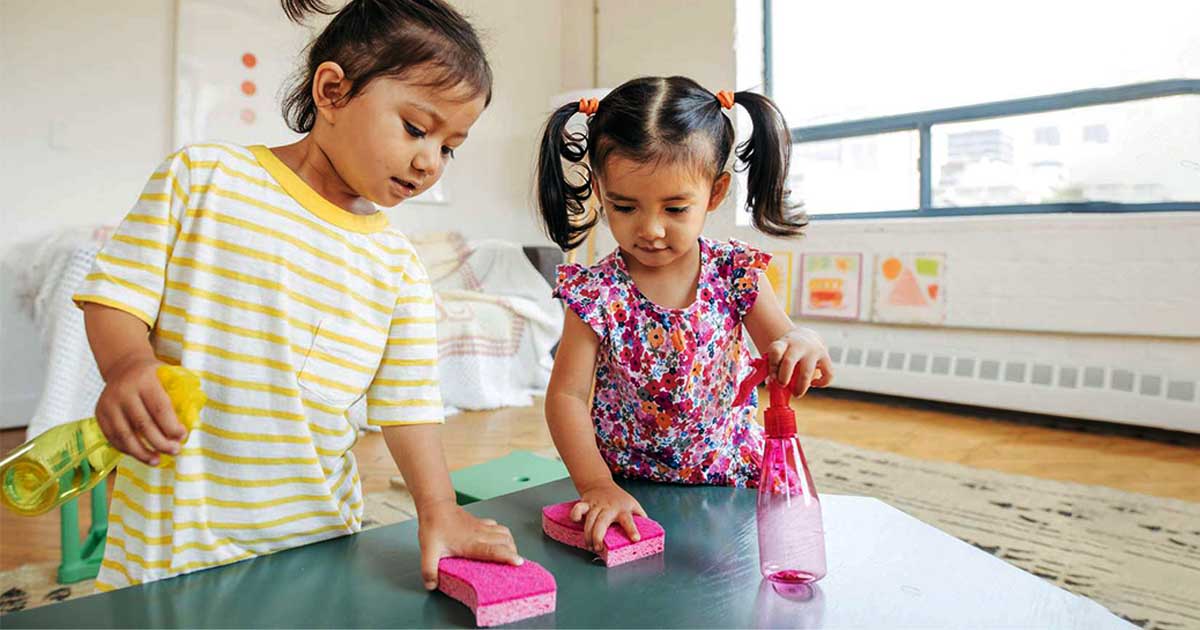As the world becomes more and more pluralistic, parents are challenged with raising children who have heightened emotional intelligence, empathy, and an awareness of their surroundings.
One way to do this is through inclusive parenting, a method that surpasses conventional ideas about childrearing.
This article will provide an extensive examination of the subject matter by discussing its foundations, methods, and advantages. Come along on this voyage that uncovers how powerful inclusive parenting can be in changing our families as well as communities forever.
What is Inclusive Parenting?
Inclusive parenting means creating an atmosphere of acceptance, honor, and care for all children irrespective of their background, talents, or sexual orientation. It involves actively promoting diversity, equity, and inclusion within the family unit.

An inclusive parenting mindset is important – especially if we want to make sure that everyone has access to advice and support in their journey through parenthood and family life.
Inclusive parenting creates an environment where every child feels seen, heard, and valued. It is about recognizing that each person comes with unique strengths that should be celebrated; it’s also about fostering a sense of belonging within the whole family.
Inclusive parents celebrate the diverse qualities and abilities that each of their children possesses thereby cultivating self-worth among all members of the household. This method seeks to provide a caring space for every kid so that they may feel appreciated, loved, and empowered enough to achieve their potential in life.
10 Unique Benefits of Inclusive Parenting
Inclusive parenting confers several distinct boons that aid in the growth and welfare of kids as well as their families.

These are some of them:
1. Enhances Empathy:
To develop empathy in children, parents should be inclusive so that their children can encounter different perspectives, experiences, and backgrounds of others. This helps them to understand what other people or children who are different from them think.
By interacting with people not like themselves, kids will appreciate others’ unique points of view and learn to put themselves in many shoes.
Such exposure will enable the children to cultivate empathy towards all groups of people hence making them have healthy relationships with each other throughout their lives as friends.
2. Improves Social Skills:
Inclusive parenting offers kids an opportunity to develop strong social skills through various social situations they face in a diverse world.
Effective communication methods, peaceful conflict resolution skills and collaboration are also part of what is learned by young minds when they engage with persons from other parts of the world with varied cultural backgrounds and financial capabilities.
Therefore, this interaction makes children tolerant and accepting of the way others are as a foundation for great interpersonal relationships at the personal life level or business environments.
3. Promotes Critical Thinking:
Inclusive parenting encourages children to think critically about diversity, equity and inclusion.
Children learn how to approach various things critically using such angles as privilege discourses, prejudice, or social justice that enables them to weigh many perspectives and hence come up with decisions based on evidence while exposing empathy among each other.
Hence this develops very intense curiosity that liberates young minds from the prevalent societal norms for them to challenge stereotypes and also advocate for positive change within their communities but also elsewhere beyond their reach.
4. Encourages Resilience:
Teaching all members of one family is what allows children to be able to stand out about different aspects of themselves or others. Kids get used to acknowledging everybody in their families so that they can embrace themselves and others too.

This self-acceptance and sense of belonging help build resilience in children by making them capable of dealing with life’s challenges, setbacks, and adversities more effectively.
However, inclusive parenting encourages a child’s autonomy by allowing kids to fight against any injustice including discrimination experienced in life.
5. Strengthens Family Bonds:
An all-inclusive parent ensures every person is treasured just as they are in the family. Parents also build strong emotional ties among their children when they promote open communication channels, empathy, and mutual respect.
This feeling of being treasured by those around us makes our family unit stronger thereby creating an environment for the emotional, social, and intellectual development of a child.
Furthermore, through inclusive behaviors and attitudes towards others, parents are teaching their kids about acceptance, kindness, and empathy which are the foundation for building healthy relationships outside their homes too.
6. Fosters Creativity and Innovation:
Inclusive parenting promotes creativity and innovation by exposing children to various ideas, perspectives as well as experiences. Inclusive parents therefore stimulate creativity and innovation about the way their young ones think as well as solve problems by allowing them to explore diversity across all forms.
Innate curiosity develops; imagination is awakened; thinking out of the box is fostered by seeing things from many angles that lead to new approaches to complex dilemmas.
Besides this fact inclusion of parental behavior/activity enables creative capability or innovative potentiality even more because it allows children to be themselves without any fear of discrimination or judgment whatsoever.
7. Prejudice and discrimination reduction:
One of the roles inclusive parenting helps to reduce prejudice and discrimination is through challenging stereotypes, biases, and discriminatory attitudes within family and society.
By encouraging acceptance, empathy, and understanding, inclusive parents teach their children about diversity such that every human being should be treated with respect irrespective of their racial origin, ethnic background, sex orientation, or disability for that matter.
This also lets them know how much privilege they have to identify racism, sexism, or ageism-related injustices. They start campaigning for social justice beginning from local communities and ending up in global platforms against racial inequality.
8. Makes Your Child’s Education Come Alive:
Research indicates that inclusivity in education enables children from different backgrounds to perform better academically due to various reasons. Being exposed to different perspectives and experiences which are key components of success in class leads to cognitive development, critical thinking as well as problem-solving skills.

Additionally, constructive parenting can build the child’s attitude towards schoolwork making him/her feel accepted into the educational framework thus enhancing his/her commitment and motivation levels resulting in higher achievement rates overall.
Therefore accepting, supporting, and having high expectations for instance an inclusive parent allows a pupil regardless of his/her social orientation to reach his/her maximum academic potential.
9. Children That Fit A Dynamic World:
Through inclusive parenting, children have been equipped with skills, knowledge, and attitudes that are necessary for survival in a dynamic world that is increasingly characterized by diversity.
Consequently, inclusive parents introduce their kids to other perspectives on life within diverse cultures and experiences leading to cultural competency, adaptability as well as intercultural communication skills which are vital for today’s global society.
Thus this type of fatherhood also boosts empathy, respect, and understanding towards others so that they can negotiate confidently through various social and cultural professional milieus to build meaningful relations and make positive impacts on the development of communities at large.
10. Positive Change Results From:
Furthermore, inclusive parenting has a positive impact in it leading to acceptance, empathy, and inclusion in families and societies alike.
Therefore these parents create a more just global justice fairer realm for future generations who will know diversity, fairness in equity fairness, and social equality from their upbringing.
By speaking out against discrimination through their words action or advocacy inclusive parents motivate people to embrace differences and work towards an equal world where every person’s rights matter significantly hence enabling them to grow wholly themselves.
These unique benefits illustrate why it is important to consider embracing inclusive parenting for child development and family wellbeing.
A Word From Mind Family
More than just a parenting style, inclusive parenting is an attitude that influences family interactions, communication, and support.
We at Mind Family believe that it is crucial to have inclusive parenting to create a nurturing environment where all children feel valued, accepted, and supported in realizing their potential.
This also makes families strong, prepares kids for a multicultural society, and contributes towards positive social transformation.
The next generation of kindhearted, compassionate, and globally concerned individuals can be nurtured by inclusive parenting as we endeavor to build a more comprehensive and fair society.
Let us go on with inclusivity to make tomorrow brighter for all children and their parents.
Frequently Asked Questions (FAQs)
1. What is inclusive parenting?
Inclusive parenting is an approach that emphasizes creating an environment of acceptance, respect, and support for all children, regardless of their backgrounds, abilities, or identities. It promotes diversity, equity, and inclusion within the family unit.
2. What are the benefits of inclusive parenting?
Inclusive parenting cultivates empathy, enhances social skills, promotes critical thinking, builds resilience, strengthens family bonds, fosters creativity and innovation, reduces prejudice and discrimination, promotes academic success, prepares children for a diverse world, and creates positive social change.
3. What is the concept of inclusive?
Inclusivity is the practice or policy of including people who might otherwise be excluded or marginalized, such as those who have disabilities, belong to minority groups, or come from different cultural backgrounds.











